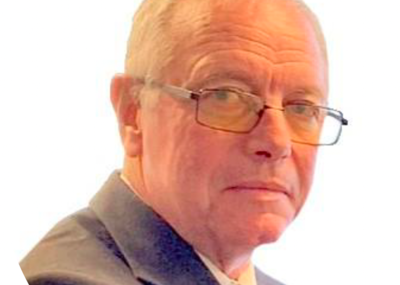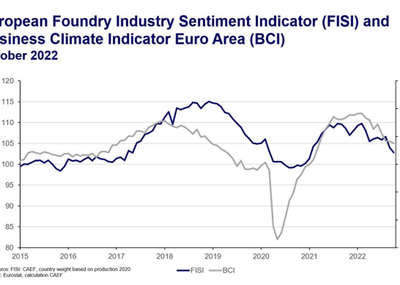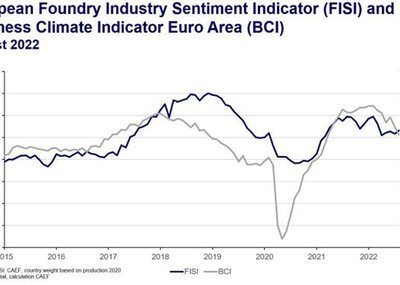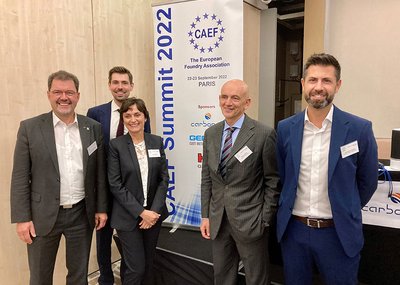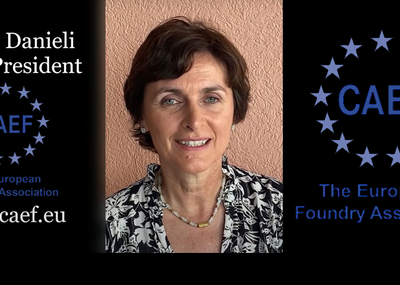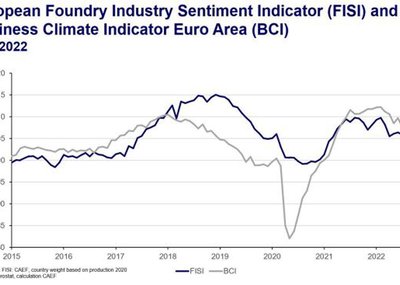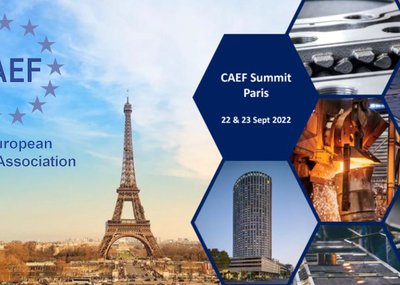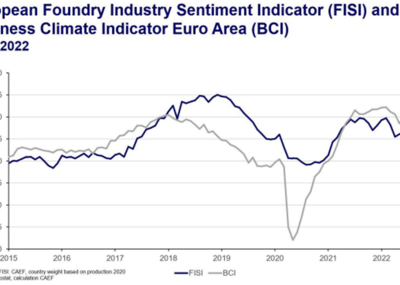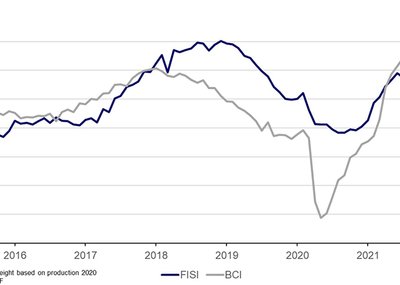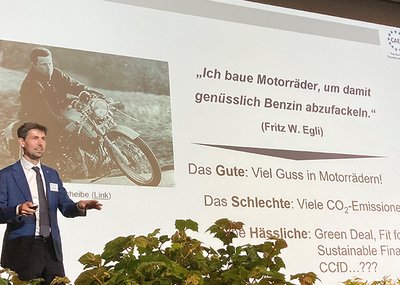With coffee and croissant to go, a group of participants took to the bus in the early morning of 22 September and travelled to Beauvais, France. About 80 kilometers away from Paris, the first CAEF Summit started with a company visit at Massey Ferguson. The manufacturer of agricultural machinery, which belongs to the AGCO Group, welcomed the foundrymen from all over Europe. The exciting company tour offered plenty of insight into the processes and provided much information about the demands and requirements of castings.
Back in Paris, Roberto Arriotti (President of the CAEF Executive Committee) and Fynn Willem Lohe (CAEF Secretary General) officially welcomed the participants to the CAEF Summit. After Tillman van de Sand (CAEF Economist) started with his presentation on the current economic situation, Stefan Mettler (Knight Wendling) presented his forward-looking study Guss 2035. The two presentations illustrated the explosive situation excellently: Distortions in the raw material and energy markets and a looming global recession are putting foundries under massive pressure, while they are playing an indispensable role in the green transformation and the expansion of renewable energies. This balancing act between crisis management and medium-term orientation was in the background of the further exchange. Before the participants enjoyed dinner together on the Seine, Fynn Willem Lohe used an interactive survey to capture the sentiment of the industry. The result could hardly have been clearer: energy costs are threatening the existence of the industry. The foundries, meanwhile, are already doing everything they can to manage the problems. While energy-saving measures have been completely used, only unorthodox measures are still effective. However, shifting production to weekends or night shifts cannot be the solution for the industry.
The second day began accordingly with presentations by two well-known experts. While Marcel Genet (Laplace Conseil) shared his decades of expertise in raw materials with the participants, Frank Roubanivitch (CLEEE) presented the current developments on the energy markets. With this understanding, the European foundrymen listened to Titas Anuskevicius (EU Commission, Policy Officer for Energy Intensive Industries). Anuskevicius, who joined the conference online from Brussels, pointed out that the EU Commission is aware of the explosive situation. At the same time, it also became clear that both national governments and the EU Commission must immediately take much more action to tackle the enormous energy prices in order not to destroy Europe as an industrial location. Thus, the transformation can only be successful if foundry industry overcomes the current crisis.
Besides questions on raw materials, energy and investments, the event ultimately focused on the importance of people. The closing point was set accordingly. E. Dilek Gündüz (General Manager at Erkunt Sanayi A S) was honoured as the first winner of the European Foundry Women's Award. In her laudation, Chiara Danieli (CAEF President) highly valued the award winner for her exemplary career and encouraged young women in particular to choose a technical profession. For Ms Gündüz it is clear: "Every excellent leader actively promotes the role of women. This not only benefits the individual female employees, but the entire organisation." The trophy was made by the French company 3D Métal Industrie.
The Summit ended with special thanks to the staff of the host Federation Forge Fonderie for making the Summit possible. Meanwhile, for the representatives of the associations, work continued at the annual CAEF Council meeting.
Background information on CAEF:
CAEF is the umbrella organisation of the national European foundry associations. The organisation, founded in 1953, has 22 European member states and works to promote the economical, technical, legal and social interests of the European foundry industry. At the same time, CAEF implements activities which aim at developing national foundry industries and co-ordinating their shared international interests. The General Secretariat is situated in Düsseldorf since 1997.
CAEF represents 4 700 European foundries. Nearly 300 000 employees are generating a turnover of 43 billion Euro. European foundries are recruiting 20 000 workers and engineers per year. The main customer industries are e.g. the automotive, the general engineering and the building industries as well as the electrical engineering industry. No industrial sector exists without using casted components.
Further information at www.caef.eu.


